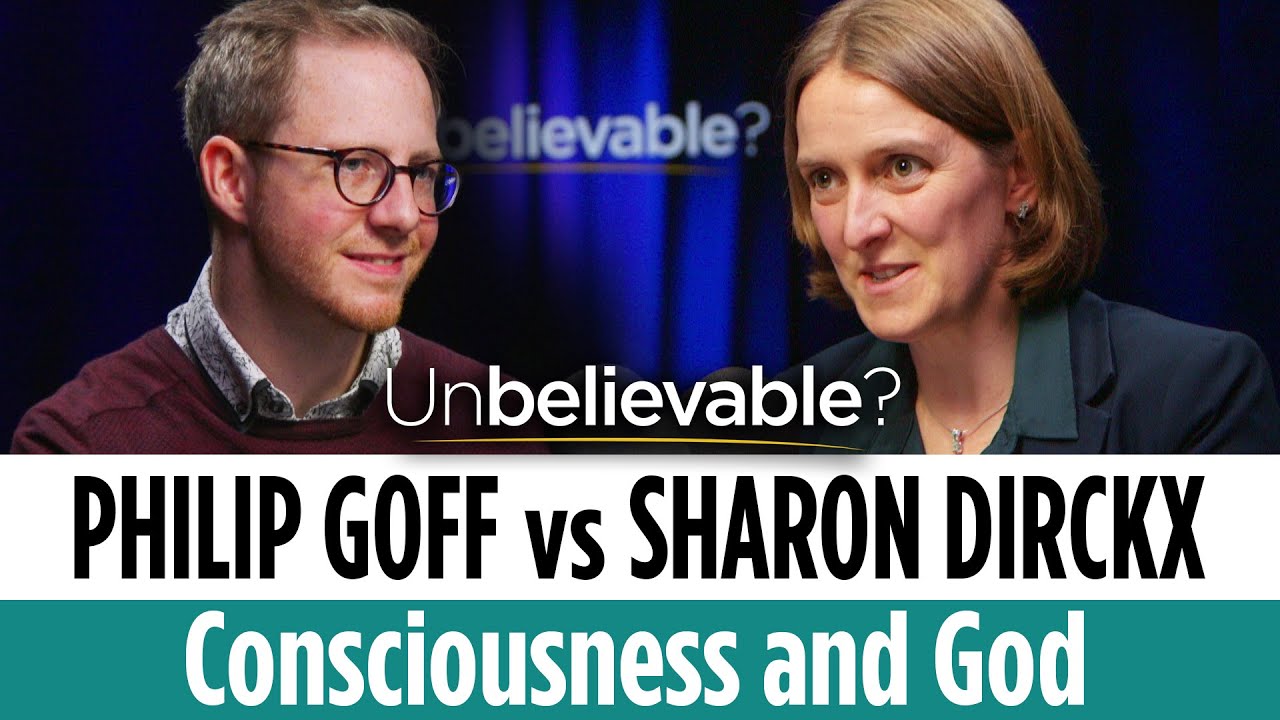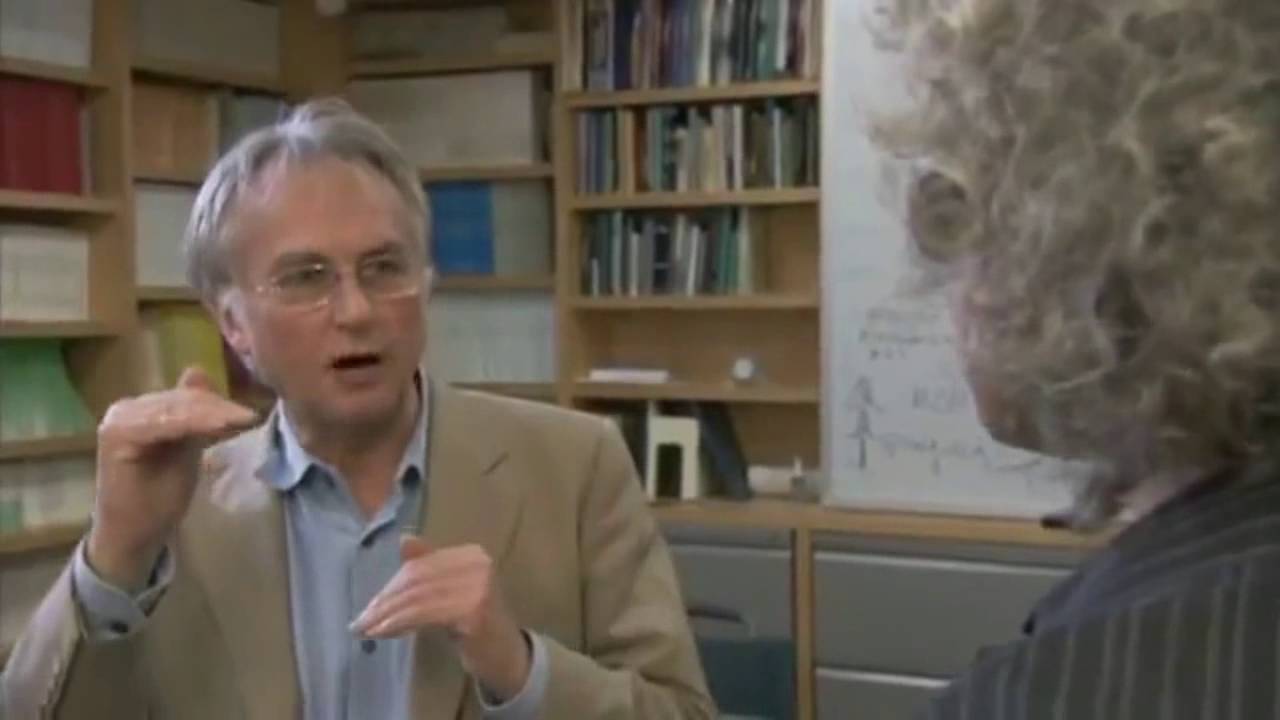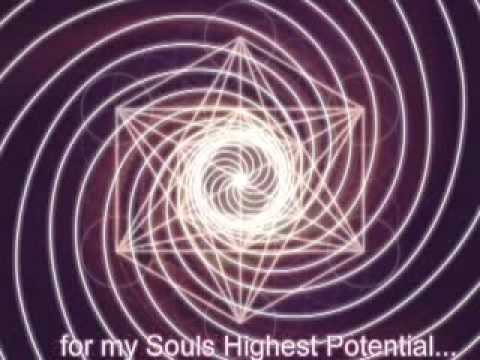Unbelievable?
Sharon Dirckx has a background in neuroscience and is the author of ‘Am I Just My Brain?’. She discusses God, the mind and panpsychism with consciousness researcher Philip Goff, author of ‘Galileo’s Error’.
For more faith debates subscribe to the weekly podcast http://www.premierchristianradio.com/Shows/Saturday/Unbelievable
For updates and bonus content sign up http://www.premier.org.uk/unbelievable-newsletter
Source




I don't get how Sharon's view couldn't point to many different concepts of God. She more or less says that our consciousness is a result of God's consciousness. While I understand how this could lead to monotheism in that God creates us as separate consciousnesses, it could also lead to a form of non-dualism in that God distributes his consciousness to us so we are all "part" of God. So, why Christianity then? While I respect her view and she is better than most Christian theologists, she still errs in the way that most Christian theologists do: making solid arguments but then jumping to a specific conclusion about God (Jesus, the trinity, etc.) that is unwarranted.
👎🏻👎🏻👎🏻 not the right people to have that conversation.. 🙄🙄🙄 religious propaganda.. 🤦🏻♂️🤦🏻♂️🤦🏻♂️
Hah, I thought the same as her in the beginning where he said “you’re writing about the brain.. and you have… a brain” 🤣 so funny
I really appreciate the philosophical keen wit of Philip Goff but the Christian mumbo-jumbo of Sharon Dirckx (at the end of the talk) is really hard to bear and it seemed that Philip felt the same by the look of him. There is quite a big intellectual gap between those two.
Mmm, pan psychism sounds neither completely scientific or biblical in the definition’s claim that “everything” has a consciousness of some kind. Rocks don’t have a nervous system/brain that reveal elements of awareness/pain/pleasure response and the Bible says that wood and stone have no spirit because they do not breathe or move and have their being. It seems to me that anything, such as a cell, that has a pain/pleasure response has a “consciousness” of some kind which can be traced back to biological factors such as pain receptors. Signal transduction, also known as cell signaling. The made up “problem of consciousness” only becomes unnecessarily convoluted when you try to apply it to more complex multi-cell organs such as the brain.
What about consciousness IS God? After all it's our only reality.
Several times someone exclaimed, so this is compatible with Christianity/theism. Isn't everything compatible with a god who can do anything?
The presence of evil in the world such as DR. Goff states as his undeniable argument against God is week at best. Evil in the world is EXACTLY what one would expect if viewing the world from the book of Genesis.
God created a perfect world, humans decided they didn't want God in charge and went about denying His guidelines for a perfect life.
Then people such as Goff then try to argue that it makes God, the very person that instructed humans how to avoid evil, the culprit behind it, and therefore non-existent.
Yet, just because one might think "god" evil, isn't an argument against his existence, he/she could just be an evil "god". So Mr. Goff fails at the outset!!
Of course I as a Christian don't believe that, Christ dying on a cross that He didn't have to do so that we can have an exit for the evil that MAN has brought on this world is an expression of LOVE. I talk to atheist all the time, and I have yet to hear a cogent argument from them. NO exception here.
At 9' at the end of her introduction Sharon Dirckx explain that : the materialist view on human brain ( the fact that every aspect of your conscious's experiences are dictated by the activity of your brain ) leads to " a very diminished view of the human person and implication for ethics Ai and free will".
Before that she said that : neurology is showing us that we are not just our brain activity.
I think that as a scientist, we have to stay on track with reality, so she should stick to the question : "is ther more than the brain ?" instead of blaming materialistic via about ethics and free-will implication.
Reality doesn't care about our feelings ; what is true is already true and will stay true wether I acknoledge it or not, so it is better to know the truth.
That is a text book case of how a pseudo philosophical discussion on an observable physical phenomenon looks like.
Ты крутой
Ideally, an extension or a part 2 of this discussion could pick up from the rather uncomfortable god-consciousness disagreement at the end. A question I would like to ask is, why this sense of progression or emergence into more complex forms of consciousness, from particles to us, and how would this relate to matters of god – I assume it would be something related to god representing the 'ultimate consciousness' to which our human consciousness 'points to.'? But the matter will always come down to what it always does in these debates – it is dependent on your belief about god. There is no reason whatsoever to believe that god is related to consciousness if you don't believe in him, and the idea that somehow science or any other discipline can seek to solve this is absurd, in precisely the same way that Philip Goff near the beginning talks of it being absurd to reduce consciousness to scientific discourse.
Sigh, crazy beliefs with zero evidence that "feel" right.
Justin you look like…..Quentin Terantino looks like you👍
Philip Goff doesn't really explain why at the quantum level there might be "consciousness" or what he means by this "consciousness". On the whole all that's been asserted here is the limitations of science, not an explanation for a molecular consciousness.
“My mind is a ready writer”
Teilhard de Chardin posits a law of complexity/consciousness according to which consciousness emerges as material elements reach a certain level of complexity in their arrangement. In some of his essays, he speculates that a kind of pre-consciousness inheres in all matter. It seems to me that his speculations co-incide with, or at the very least foreshadow, the notion of panpsychism
I recommend you check out Bernardo Kastrup's ideas on the topic. He basically points out that we only have access to a mental aspect of the world (even an atheist like Sam Harris would agree with him on that), and that if we could describe the world as a mental phenomenon, then that description would be preferable. He then goes on to create a philosophical model of the world, where the universe as a whole is the second person perspective of a broader transpersonal mind, just like your brain is the second person perspective of your mind ( without your brain being what gives rise to your mind)
Reality is made of 2 things. 1. The Creators will. 2. The manifestation of It's will. There is NOTHING else.
Phillip making several errors. First, I don't really get the Occam's razor onbsession not least because I am unconvinced of the need for simplicity as issues are complex. Second, he makes out as if someone of these views – materialism, idealism etc – are all equal or the same (they are not). Materialism falls down becuase if you assert that all phenemona comes from the material or physical world then that is a) a metaphysical position not known via materialism therefore false, b) the claim that 'everything comes from the material' is a position that cannot be known via science or materialism – false. Third, yeah, it leads to God simply because the mind has a capacity for metaphysical concepts – we can think and use metaphysical concepts. The idea that the metaphysical can come from the physical is illogical as the metaphysical is beyond the physical. Which leads you inexorably to God (or at least severely undermines all atheism based on the rejection of the metaphusical).
Why is hylemorphism (Aristotle and Thomas Aquinas) not more extensivly discussed?
I'm curious as to weather or not Sharon Dirckx came from a religious family.
the irreducibility of consciousness undermines the Materialist assumption that everything is reducible to a physical explanation
10:10 And here we go again with the elementary first grade objection: The dumb problem of evil. For me, the "debate" was over right there…! Atheism is laughable at best! Philip is not only completly ignorant of the destruction of that "argument" (because is not an argument anymore, is more like an emotional howl and bark), but he is also ignorant of Dr. Dirckx work!
I’m always baffled how people link the problem of evil with God’s existence. Sure you could call into question some Christian assumptions about God’s character, but it has zero bearing on if an incorporeal creator mind is needed to explain existence.
My problem with Panpsychism is that it reduces to Substance Dualism.
You simply cannot take a bunch of points of view and combine them into one point point of view (the combination problem). The only way to solve it is by some sort of fusing postulate that happens – split brain patients would be defusing.
The issue is that this fusing would be happening to the first-person, subjective, qualitative aspect of reality.
The fusing would NOT occur to the third-person, objective, quantitative particles that physically interact.
We are right back to the radical distinction the Panpsychist wants to desperately avoid.
You NEED Kastrup on your show against Phillip Goff.
Idealism vs Panpsychism
The most interesting conversation I've heard in a while. Can't stand Peterson anymore.
conscience Life has always existed and never had a beginning
conscience Life comes from preexisting conscience Life, THAT IS is a proven fact
Spontaneous generation was disproved in the 19th century
consciousness comes from preexisting consciousness
Very interesting conversation. Sharon has the qualities of a deep thinker and philosopher, coupled with her knowledge of science, this is what you need when you attempt to figure out reality.
Goff and Dirckx both want to preserve the existence, irreducibility and causal efficacy of consciousness, but they are stumped by the combination problem and mind-body problem respectively. Idealism dissolves both of these problems and offers a way to keep what Goff and Dirckx wants to preserve.
This is a fruitful and respectful conversation.